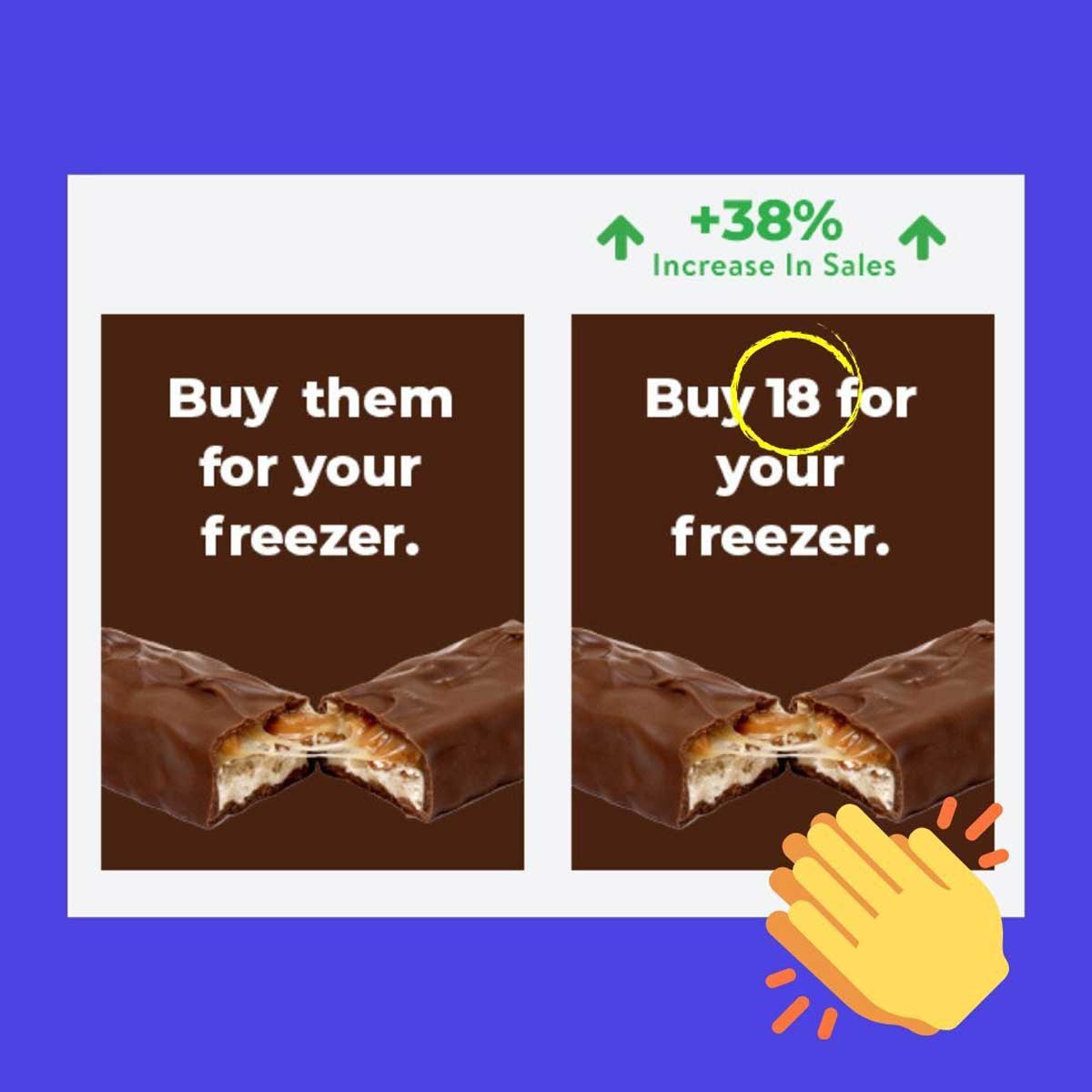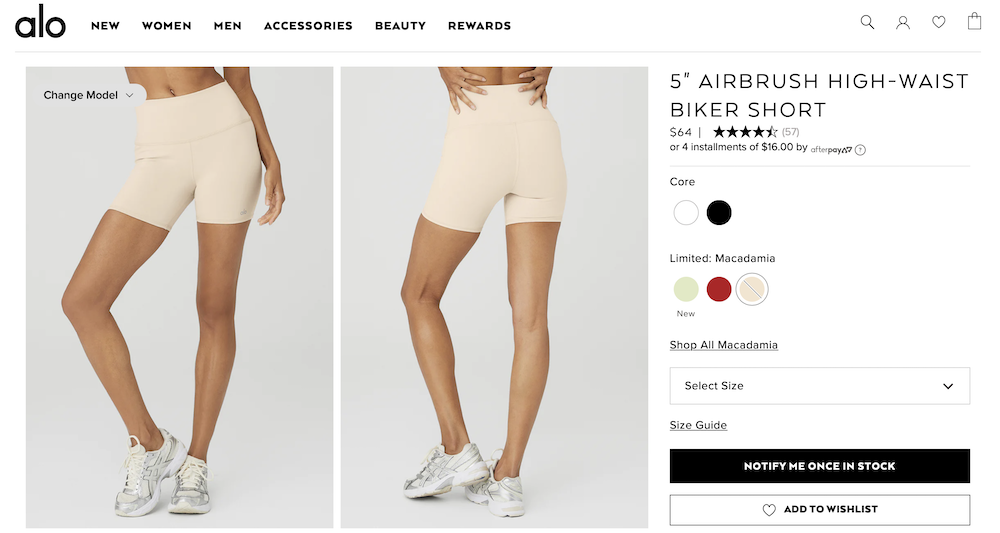Hello everyone, This week we're talking about specific suggestions, specific numbers, and the sold-out effect.
Let's dive in!
–Neal |
Together with Segment We've been using Segment at DC for almost four years. It's one of my favorite tools.
Why do I love it? Segment:
1. Simplifies tracking. Instead of needing to log every event with 8 different tools, I instead use Segment to do it once. It then sends data to all the tools we use, like Amplitude, Customer.io, Facebook Ads, Google Ads, and Intercom.
2. Empowers the marketing team. Once you have Segment installed, the marketing team can decide to add a new tool without bugging an engineer to install it. And in my experience, engineers hate doing things for marketers.
3. Pumps data from various tools into others. For example, use Segment to pump data from Intercom and Customer.io into Amplitude where we then analyze our data.
Because of Segment, we're able to make informed, data-driven decisions. We have the data we need in the tools we need them. We're also able to make personalized email campaigns.
And we massively cut down on engineering resources needed on the team to handle integrating with a dozen different APIs on an ongoing basis. And Segment is free for early-stage startups. Apply for the Startup Program → |
|
|
1. Use specific suggestions to increase sales Insight from Neal and Second Cup.
When I was fresh out of university, I worked at a coffee shop called Second Cup. This Canadian chain trained its staff in a simple but effective sales technique: "Make one specific, contextual cross-sell suggestion."
For example, if it was first thing in the morning and someone ordered a coffee to go, I might’ve asked them, "Would you like a blueberry muffin to go with your coffee?"
Or if it was 9pm and a couple ordered drinks, the barista might follow up with, "How about a slice of cheesecake to go with that?" Most of the time, people would say yes, effectively doubling the order value. Specific suggestions were far more effective than generic ones like, "Would you like anything else?" To those, people automatically replied, "No, just gimme what I ordered."
A specific suggestion, on the other hand, made them picture the item and start craving it. This is what makes cross-sells on Amazon and other retail sites work so well. Amazon’s "Featured items you may like" and "What do customers buy after viewing this item?" sections make you go, "Hmmm, maybe I do need that nice-looking bag for this camera I'm buying." You can picture using the two items together. Cross-selling can bump up order values at checkout too: |
Try out specific suggestions in your sales funnels and conversations to boost average order values. 2. Use specificity to anchor people Insights from Why We Buy. The first number we see becomes our point of comparison for future numbers—known as the anchoring bias.
For example, if someone says their service costs $5,000 per month and up, you're anchored to the number $5,000. If they then give you a quote of $25,000 per month, you're gonna have sticker shock—even if you're being offered way more value than the $5k/mo package.
Snickers grew sales by 38% simply by adding an anchor (the number 18) to their ad: |
By including that number, Snickers suggested that 18 chocolate bars was a typical amount to have in your freezer. If you ordered fewer than that, you were being positively virtuous.
As in Tactic #1, the specificity here makes it easier to picture the items in your life. I know what 18 Snickers bars in my freezer look like. And now that I can picture them, I realize that that’s where they ought to be. |
3. The "sold-out" effect Insight from Ariyh. Say you’re in the market for some biker shorts. You find the perfect ones: |
But drat, they’re sold out in the macadamia color! So you hurry up and order them in red, before those sell out too. When you see sold-out options/models, you’re more likely to buy whatever’s left (assuming you weren’t looking for a super-specific version).
Why? The "sold out" label acts like social proof. It tells you that the product is desirable and high quality. And it adds time pressure. If you want it, you better buy it before it sells out too. But there’s a caveat: Seeing too many sold-out products reduces the likelihood of a purchase. Shoppers expect a certain amount of freedom of choice. We’ll jump ship if we think that freedom is being threatened.
Two important takeaways: - Don’t immediately remove sold-out product options from display. Keeping them may make people perceive your product as being higher quality.
- But don’t display sold-out products if they make up more than 30% of your inventory. Between 10-30% is a good range of sold-out products to feature.
|
Community Spotlight
From our newsletter subs to our Growth Program and Sprint alumni, we love to hear about what’s going on in the Demand Curve community. Here are a few wins we’re excited to celebrate: - We’re rooting for Arnaud Raulet as he launches a new business! Arnaud is a patent translation wizard with expertise in data science and digital marketing for Japanese and French companies.
-
Big kudos to John White, who grew sales of his handmade wooden accent furniture by 50% using our growth tactics! You can find his masterpieces at Cannery Camp.
Want to see your name in the next issue of the Growth Newsletter? Share about your work and any of your recent growth marketing wins here. |
|
|
News you can use: -
A few experiments worth noting on the AI front: LinkedIn is testing out AI prompts for ad copy creation and an InMail chatbot, while Instagram is testing its own AI chatbot in DMs.
- Some recent non-AI releases: LinkedIn announced DMs for company pages and three new ad formats: In-Stream Video ads, Conversation Ads, and Thought Leader Ads.
Reddit launched two new ad products of its own—Contextual Keyword Targeting and Product Ads—although the bigger Reddit news was the 7k+ subreddits that went dark in protest of API pricing changes.
WhatsApp debuted Channels, a feature that broadcasts updates from people and organizations you've followed. Yep, basically another social media tool.
-
And going back to AI: We learned that
ChatGPT can tell a joke—but only a few of them. Plus, its tendency to get the facts wrong sometimes got it in hot water last week, when a man sued OpenAI for libel after ChatGPT falsely said he’d been accused of embezzling money. It’s the
first lawsuit of its kind but could be a signal of how wild the AI legal landscape might get (not to mention all those copyright concerns).
Content we recommend: Email Signature Dummies Guide*
Tap into the power of email signatures as a marketing tool.
Get your Email Signature Dummies Guide, a comprehensive eBook that walks you through eight ways to make the most of email signatures.
With the guide, you’ll learn how to: - Use your email signature for promotions, social media, and brand management.
- Get consistent email signatures across your organization.
- Manage your company’s email signatures more quickly and effectively.
Make your email signature work for you. Get the guide.
*Sponsored by Exclaimer |
|
|
What did you think of this week's newsletter?
😍 Loved it | 😄 Great | 🙂 Good | 🤷♀️ Meh | 🤬 Bad
If you enjoyed this, please consider sharing it with a friend. These newsletters take hours to make each week, so it really helps when you share us with fellow founders and marketers.
Who's Demand Curve?
We’re on a mission to help make it easier to start, build, and grow companies. We share high-quality, vetted, and actionable growth content as we learn it from the top 1% of marketers. We democratize senior growth knowledge. How we can help you grow: -
Read our free playbooks, blog articles, and teardowns—we break down the strategies and tactics that fast-growing startups use to grow.
- Enroll in the Growth Program, our marketing course that has helped 1,000+ founders get traction and scale revenue.
Check out our Sprints: short video courses that are laser-focused on a topic in growth.
Want to build an audience of buyers? Join the waitlist for the Un-ignorable Challenge. -
Are you a funded startup looking to grow? Our agency, Bell Curve, can be your strategic growth partner.
Get your brand in front of our audience by sponsoring this newsletter.
See you next week.
— Neal, Grace, Joyce, Dennis, and the DC team. |
|
|
© 2023 Demand Curve, Inc. All rights reserved. 4460 Redwood Hwy, Suite 16-535, San Rafael, California, United States
Unsubscribe from all emails, including the newsletter, or manage subscription preferences. |
|
|
|








